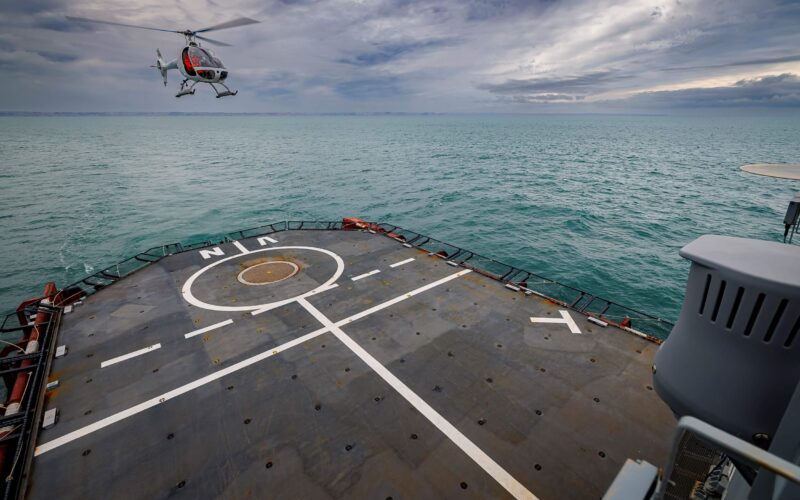Airbus has started testing autonomous take-off and landing capabilities at sea for the VSR700, Airbus’ autonomous unmanned aerial (UAS). The VSR700 UAS is currently being developed for the French Navy.
To conduct the tests, Airbus used an optionally piloted vehicle (OPV) based on the Guimbal Cabri G2 helicopter. The OPV was also equipped with the autonomous take-off and landing (ATOL) system developed for the VSR700. During the test campaign, Airbus managed more than 150 successful autonomous landings at sea with the OPV.
“These tests in real-life conditions constitute a crucial step towards the campaign that we will conduct at sea with the DGA and the French Navy later this year,” explained Nicolas Delmas, head of the VSR700 program for Airbus Helicopters.
Delma added: “Using the OPV, we have demonstrated the unique autonomous take-off and landing capabilities of the VSR700. We have also proved the optimal functioning of the vehicle and its command station interface on board a vessel in realistic conditions.”
We have begun trialing autonomous take-off & landings at sea for the #VSR700 being developed for the @MarineNationale.
During the test campaign, the OPV (optionally piloted vehicle) managed more than 150 successful autonomous landings, paving the way for the next steps! https://t.co/FlmLBDR2wb— Airbus Helicopters (@AirbusHeli) March 24, 2022
The VSR700 is Airbus’ tactical unmanned aerial system designed to fulfil the requirements of navies worldwide. The VSR700 is designed to have a maximum of 1,000 kilograms take-off weight. It will be able to carry multiple full-size naval sensors for extended periods and can operate from existing ships.
The first prototype of the VSR700 unmanned aerial system performed its maiden flight in 2020. There are currently two VSR700 prototypes.

